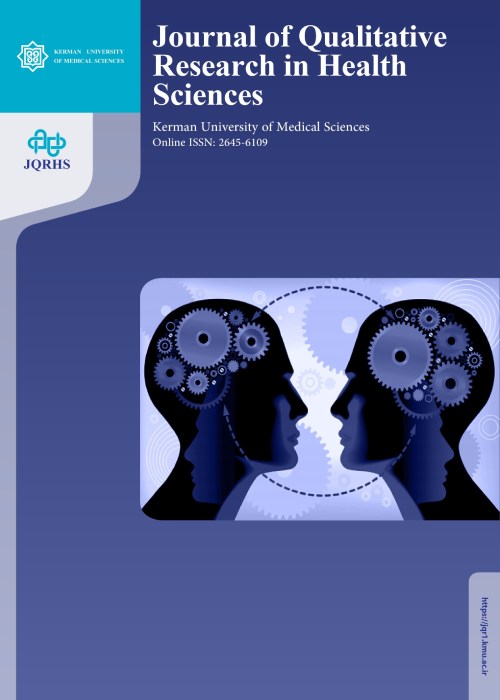Para medicine Students’ Experiences of Virtual Education: A Qualitative Study
Author(s):
Article Type:
Research/Original Article (دارای رتبه معتبر)
Abstract:
Background
The emergence of the Internet and its development led to the expansion of virtual education. The development of virtual education in recent years has had a tremendous impact on the improvement of education and the establishment of educational justice in different parts of the world. Despite its advantages, virtual education is also associated with some challenges. The present study aimed to investigate para medicine students’ experiences of virtual education.Methods
This qualitative study was conducted using conventional content analysis. The participants were 25 students in various fields of para medicine who were selected using purposive sampling. The study took place at universities in the north of Iran. The data were collected using semi-structured in-depth interviews and focus groups from January to April 2022. The collected data were analyzed using Graneheim and Lundman’s qualitative content analysis method.Results
The core category identified in this study was from helplessness to interaction which was divided into three main categories (challenges and desperation, deprivation of mutual interaction and learning, and resilience and adaptation) and fourteen subcategories.Conclusion
The main theme extracted from the interviews with the participants was from helplessness to interaction. When a person has numerous failures, cannot control environmental conditions, and feels the ineffectiveness of their activity and response, they will experience a sense of vulnerability. Thus, the person has to accept the conditions and interact with them. In other words, interaction is a skill that improves the ability to quickly learn new skills and behaviors in response to the conditions. Thus, identifying challenges and realizing the weaknesses, strengths, opportunities, and threats governing the existing virtual education environment can help to turn many threats into opportunities, promote virtual education, and support teachers and students to improve the quality and quantity of the teaching-learning process in the COVID-19 and post-COVID-19 era.Keywords:
Language:
English
Published:
Journal of Qualitative Research in Health Sciences, Volume:13 Issue: 1, Spring 2024
Pages:
34 to 41
magiran.com/p2700328
دانلود و مطالعه متن این مقاله با یکی از روشهای زیر امکان پذیر است:
اشتراک شخصی
با عضویت و پرداخت آنلاین حق اشتراک یکساله به مبلغ 1,390,000ريال میتوانید 70 عنوان مطلب دانلود کنید!
اشتراک سازمانی
به کتابخانه دانشگاه یا محل کار خود پیشنهاد کنید تا اشتراک سازمانی این پایگاه را برای دسترسی نامحدود همه کاربران به متن مطالب تهیه نمایند!
توجه!
- حق عضویت دریافتی صرف حمایت از نشریات عضو و نگهداری، تکمیل و توسعه مگیران میشود.
- پرداخت حق اشتراک و دانلود مقالات اجازه بازنشر آن در سایر رسانههای چاپی و دیجیتال را به کاربر نمیدهد.
In order to view content subscription is required
Personal subscription
Subscribe magiran.com for 70 € euros via PayPal and download 70 articles during a year.
Organization subscription
Please contact us to subscribe your university or library for unlimited access!



